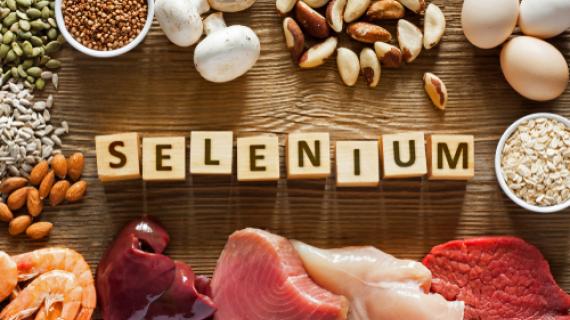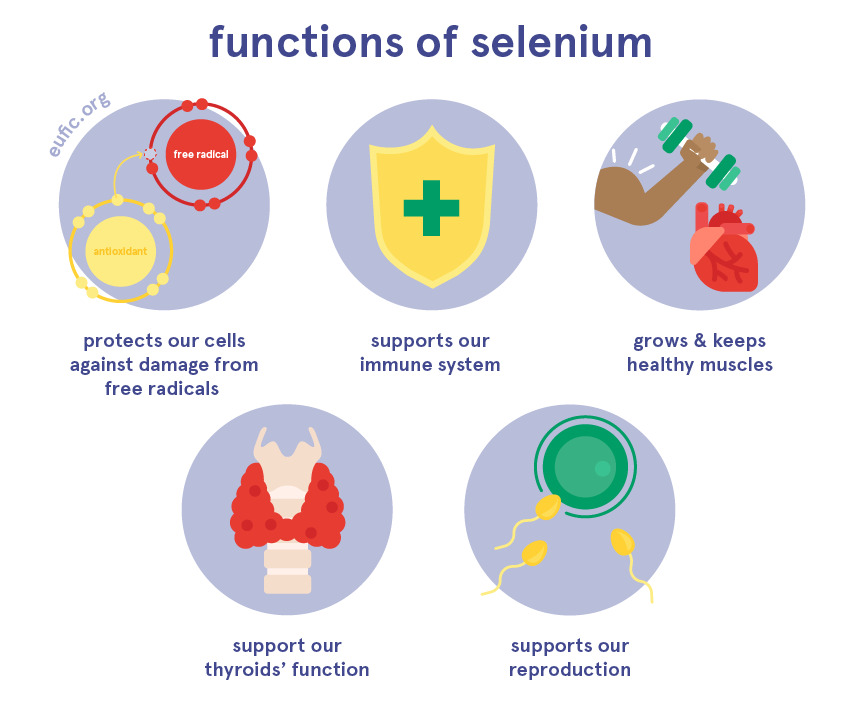How to protect DNA and cell damage using Selenium?
Selenium and its use in a human body

Selenium is one of the several most important minerals required to maintain overall health of the body. A human body needs a trace amount of selenium to permit its several important functions in the body. This mineral plays a key important role in maintaining several vital roles and responsibilities such as:
- DNA Synthesis
- metabolism pof thyroid hormone
- safety from oxidative stress
- safety from infections.
- Protects body from free radicals
Selenium is typically stored inside human body tissues, majorly in skeletal muscle. It is a crucial mineral to perform several biochemical activities inside the body.
Benefits of Selenium

Although been a trace mineral require for the body, there are a number of benefits that associated the role of selenium in one way or other that includes:
- supports immune system
- reduces the risk of age related cognitive decline
- maintains healthy thyroid functions
- prevents HIV progression to AIDS
- supports fertility
- reduces inflammation
- reduces platelet build up
- prevents oxidative modifications of fats and lipids
- reduces impairment that results in Alzhiemer’s disease
- prevents cancer by repairing DNA
Natural sources of Selenium

The amount of selenium generally differs from region to region due to the different content of selenium that is present in the soil in which the food grew. Selenium is a kind of mineral that a human body cannot produce on its own. A human body consumes selenium through selenium rich diet that is commonly available such as:
- Beef
- chicken
- eggs
- sunflower seeds
- mushroom
- spinach
- lentils
- banana
- yogurt
- milk
- ham
- fish
- brazil nuts
- pork
- turkey
- cottage cheese
- brown rice
- baked beans
- oatmeal
- cashews
Necessary amount of Selenium Intake for humans
Amount of selenium for an individual is generally based on an individual’s age, medical conditions, and daily diet, which has a standard classification such as:
For Infants:
- For babies below 6months old, 15 mcg of selenium if needed
- 20 mcg of selenium is beneficial for babies between 7-12 months old.
For Children:
- 20 mcg of selenium daily for toddlers between 1-3 years.
- 4-8 years of children need 30 mcg of selenium per day.
- children between 9-13 years of age demand 40 mcg of selenium daily
For Females:
- 14-18 year olds need 55 mcg of selenium daily.
- Adults need 55 mcg of selenium everyday.
- pregnant females need 60 mcg/day of selenium.
- lactating females need 70 mcg/day of selenium.
For Males:
- 14-18 year olds need 55 mcg of selenium daily
- Adults need 55 mcg of selenium everyday.
REFERENCES:
- https://www.medicalnewstoday.com/articles/287842#benefits
- https://www.healthline.com/health/selenium-foods#_noHeaderPrefixedContent
- https://medlineplus.gov/ency/article/002414.htm
- https://ods.od.nih.gov/factsheets/Selenium-Consumer/
- https://www.getroman.com/health-guide/selenium-deficiency-signs/
- https://www.eufic.org/en/vitamins-and-minerals/article/selenium-foods-functions-how-much-do-you-need-more
- https://nootriment.com/selenium/
- https://blog.designsforhealth.com/node/829
For more details, kindly visit below.